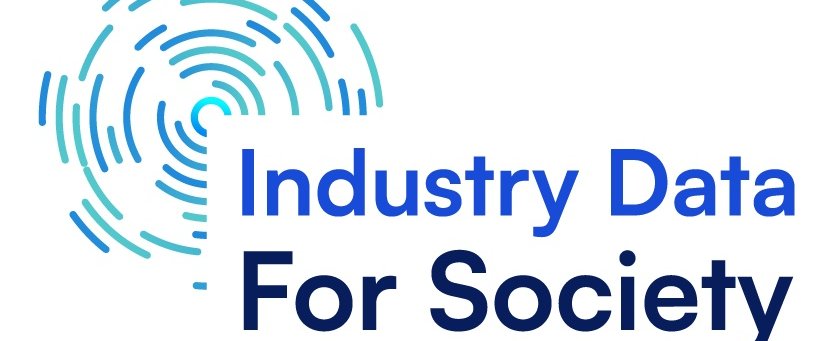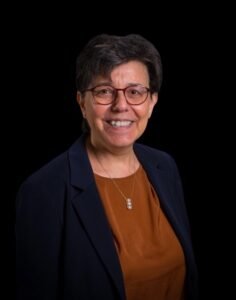
In December 2022, the IDSP and the Open Data Institute launched the Data for Local Environments Challenge. In June 2023, a global judging panel of six experts decided upon the three winners of the Challenge from a shortlist of seven projects. The total prize pot for the challenge is $100,000. The prize for the overall winner is $50,000, with $30,000 and $20,000 going to the runners-up.
The winners
We are now delighted to announce the winners of the Challenge.
The winners are:
- First place: Estimated Energy Attribution Certificates linked to Councils, Ayrton Bourn
- Second place: Infrastracker | Open Data for Local Governments to Reduce Infrastructure Development-Co2 Emissions, Richard Muraya, Caroline Njoki, Clifford Tchoyi, Lillian Njeri and Benson Njuguna
- Third place: Council Climate Action Scorecards, Isaac Beevor, Annie Pickering and Hannah Jewell
Estimated Energy Attribution Certificates linked to Councils, Ayrton Bourn
To address the many challenges faced by UK Local authorities as they work towards achieving net-zero emissions targets, this project creates Estimated Energy Attribution Certificates (EEACs) that are calculated on a half-hourly basis and tied to individual assets. By combining generation data across UKPN’s ECR, BMRS, and REPD datasets, as well as modelling renewable generation using ERA5 data from Microsoft, the total renewable generation in each local authority can be calculated. The implied reduction in emissions can then be estimated based on half-hourly carbon intensity data from the National Grid.
Infrastracker | Open Data for Local Governments to Reduce Infrastructure Development-Co2 Emissions, Richard Muraya, Caroline Njoki, Clifford Tchoyi, Lillian Njeri and Benson Njuguna
Infrastracker is a proposed project in Kenya that integrates community-centred public participation in transport infrastructure development and open data including Motor Vehicle Registration, GIS and GHG emissions data to support the recently established local/County Governments to reduce carbon emissions and environmental impact during road construction processes.
Council Climate Action Scorecards, Isaac Beevor, Annie Pickering and Hannah Jewell
Council Climate Action Scorecards is the first-ever citizen data project that evaluates local government progress towards net zero and identifies the gaps between ambition and actual climate action of all ~400 UK councils. The Scorecards solve the problems identified by uniting the local climate action movement, creating a one stop shop of data on all the actions councils can take and have taken – rather than the siloed, sector specific data that currently exists. For more information on the winners, read the project shortlist announcement.
The judging panel
Meet the judging panel for the Challenge:
- Linda Chandler – Industry Lead, UK Smart Places, Microsoft
- Shannon Dosemagen – Shuttleworth Foundation Fellow and Director
- Melissa Tallack – Open Data Lead, Northumbrian Water Group
- Matt Webb – Head of Enterprise Data Management,UK Power Networks
- Micheline Ayoub, MSc, PhD – Executive Director, Sustainability in the Digital Age
- Casey Weston – Senior Manager, Public Policy & Economic Graph, LinkedIn
Linda Chandler – Industry Lead, UK Smart Places, Microsoft

Linda Chandler is an Industry Advisor in the Local and Regional Government team at Microsoft UK with a particular focus on Smart Places. Originally a technologist in the early days of data analytics, she has spent the latter half of her 30 year career specialising in the area of smart cities both in the UK and APAC and holds an external position as a Design Council Expert.
Shannon Dosemagen - Shuttleworth Foundation Fellow and Director

Shannon Dosemagen is an environmental health advocate and enthusiastic about the potential for open systems and technology to support the creation of a more just and equitable future. Shannon is Director of the Open Environmental Data Project, a Shuttleworth Foundation Fellow, co-founder of Public Lab and Executive Director from 2010-20, on the board of both the Open Science Hardware Foundation and Code for Science and Society, and previous Chair of both the U.S. National Advisory Council on Environmental Policy and Technology and the Citizen Science Association.
Melissa Tallack - Open Data Lead, Northumbrian Water Group

Melissa Tallack is an experienced data and digital leader with 3 decades of experience in the water industry. Prior to setting up her own company last year, Melissa spent nearly 28 years at Anglian Water Services. There she held a variety of roles from operational front line to asset management, strategic change management and in the later years leading their Data and Digital Services function where she modernised the practices and technologies. Melissa has a passion for facilitating change with people, processes, data and technology in order to drive valuable outcomes for business, society and the environment.
Matt Webb – Head of Enterprise Data Management, UK Power Networks

Matt Webb is the Head of Enterprise Data Management at UK Power Networks, the electricity distribution system operator for London and the south-east of England. Matt holds an MSc in Information Systems Management and leads the company’s data and information management strategy, with responsibility for enterprise data governance, management and engineering services. Previously, Matt was Head of Asset Information where he led an international team responsible for all aspects of UK Power Networks’ asset systems and information management activities. He began his career in business development and programme management roles within the construction and building services sector.
Micheline Ayoub, MSc, PhD – Executive Director, Sustainability in the Digital Age

Micheline has recently been appointed as the Executive Director of Sustainability in the Digital Age (SDA) , a think tank of Concordia University, Montréal. Before SDA, she was the director of partnerships at My intelligent Machines, a start-up in AI for the analysis of 'omic' data. She is a director of the boards of CAAIN, Zone Agtech and Biofuelnet. She also serves on the Scientific Advisory Board of the ‘Biomass Canada’ Cluster and as a judge of the 3 minutes thesis competition at Mcgill and for the Québec Society of Phytopathology since 2017. She has extensive experience in research and granting programs and partnership management. Born and raised in Beirut, Lebanon, Micheline adopted Montreal as her home when she came to study at Macdonald Campus of McGill in plant breeding and agriculture. She has served as a member of the parent council of the Alexander von Humboldt German International school in Montreal for numerous years.
Casey Weston – Senior Manager, Public Policy & Economic Graph, LinkedIn

Casey Weston co-leads LinkedIn's Data for Impact program, which leverages aggregated, anonymized data to inform public investments, policies, and programs. He brings to this role his experience crafting evidence-based policies and programs with the World Bank, the New York City Department of Health and Mental Hygiene, and the social impact consulting firm Dalberg Advisors. He holds degrees in urban planning from Stanford University and New York University. For more information on the Challenge, read the original announcement here.